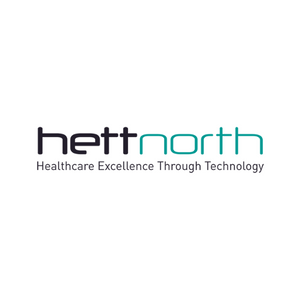Shared Care Records (SCRs) are emerging as a transformative solution that promises to enhance patient care, streamline communication among healthcare providers, and contribute to a more integrated healthcare system. This blog post delves into the critical role, governance structures, and myriad benefits of Shared Care Records, underscoring their significance in shaping the future of healthcare delivery in the UK.
The Role of Shared Care Records
1. Comprehensive Patient Information:
Shared Care Records serve as centralised repositories of a patient's health information. By aggregating data from various healthcare providers and settings, these records provide a comprehensive view of a patient's medical history, treatment plans, medications, allergies, and more. This holistic perspective allows healthcare professionals to make informed decisions and deliver personalised care.
2. Enhanced Care Coordination:
One of the primary functions of Shared Care Records is to facilitate seamless communication and collaboration among healthcare providers. These records transcend traditional silos, allowing different healthcare professionals involved in a patient's care – from general practitioners to specialists, hospitals to community care providers – to access and share relevant information in real-time. This fosters improved care coordination and ensures that all stakeholders are on the same page regarding a patient's healthcare journey.
3. Supporting Urgent Care Situations:
In emergency or urgent care situations, access to timely and accurate information is crucial. Shared Care Records enable healthcare providers to quickly retrieve vital patient data, including allergies, medications, and pre-existing conditions. This swift access to information can be life-saving in critical situations, improving the efficiency and effectiveness of emergency care.
4. Empowering Patients:
Shared Care Records also empower patients to actively participate in their healthcare journey. With secure access to their own health records, patients can review their medical history, track medications, and engage in more informed discussions with healthcare professionals. This level of transparency enhances patient engagement and encourages a collaborative approach to healthcare decision-making.
Governance of Shared Care Records in the UK
1. Data Security and Privacy:
The governance of Shared Care Records in the UK places a strong emphasis on data security and patient privacy. Strict protocols and encryption measures are in place to safeguard sensitive health information. Compliance with data protection regulations, such as the General Data Protection Regulation (GDPR), is a fundamental aspect of the governance framework.
2. Interoperability Standards:
To ensure seamless information exchange among different healthcare systems, interoperability standards play a vital role in the governance of Shared Care Records. These standards enable compatibility and integration between diverse electronic health record systems, ensuring that data can be shared effectively while maintaining its integrity.
3. Consent Management:
Governance frameworks for Shared Care Records incorporate robust consent management mechanisms. Patients have the right to control who can access their health information and under what circumstances. Clear consent processes and tools are in place to uphold patient autonomy and privacy rights.
4. Audit Trails and Accountability:
Accountability is a cornerstone of Shared Care Records governance. Comprehensive audit trails track who accesses patient records, when, and for what purpose. This not only enhances transparency but also holds healthcare providers accountable for the appropriate use of patient data.
Benefits of Shared Care Records in the UK
1. Reduced Duplication and Errors:
Shared Care Records significantly reduce the duplication of tests and procedures. With access to a patient's complete medical history, healthcare providers can make informed decisions, avoiding unnecessary tests and minimising the risk of medical errors.
2. Efficiency Gains and Cost Savings:
The streamlined communication facilitated by Shared Care Records results in efficiency gains across the healthcare system. Reduced administrative burden, quicker decision-making, and optimised resource utilisation contribute to overall cost savings for healthcare providers and the NHS.
3. Improved Patient Outcomes:
The comprehensive and real-time nature of Shared Care Records directly contributes to improved patient outcomes. Healthcare professionals can make more informed diagnoses, create tailored treatment plans, and ensure that patients receive timely and appropriate care.
4. Facilitation of Population Health Management:
Shared Care Records play a crucial role in population health management. By analysing aggregated health data, healthcare authorities can identify trends, allocate resources effectively, and implement targeted interventions to improve the health of specific populations.
The Future of Healthcare and Shared Care Records
In conclusion, Shared Care Records are a cornerstone of the evolving healthcare landscape in the United Kingdom. The transformative impact of these records on care coordination, patient outcomes, and healthcare efficiency underscores their importance in shaping the future of healthcare delivery. With robust governance frameworks in place to ensure data security and patient privacy, Shared Care Records are poised to play a pivotal role in achieving the vision of an integrated, patient-centered healthcare system in the UK. As the adoption of these records continues to grow, the benefits they bring to patients and healthcare professionals alike mark a significant milestone in the ongoing journey toward healthcare excellence.
%20(1).png?width=500&height=58&name=HETT%20insights%20logo%20RGB-04%20(1)%20(1).png)


